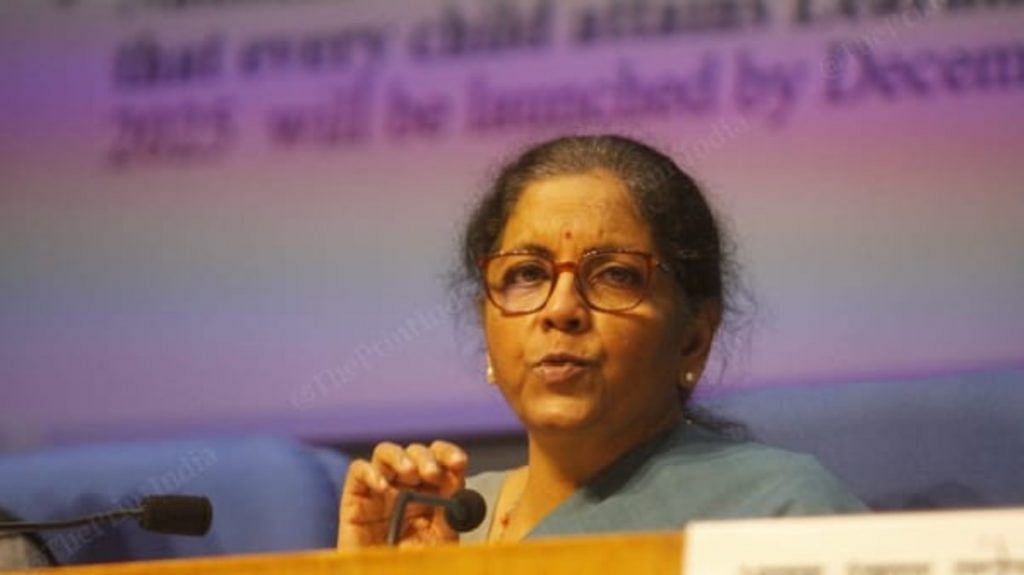New Delhi: Union Finance Minister Nirmala Sitharaman Sunday announced the final set of measures part of the Narendra Modi government’s Rs 20-lakh-crore economic package, including a 65 per cent increase in allocation for MGNREGA this fiscal to help migrant workers who have returned to their home states find livelihoods.
Sitharaman, at a press briefing, also announced relief for companies from provisions of the Insolvency and Bankruptcy Code, and raising the borrowing limit for states to 5 per cent of the gross state domestic product (GSDP).
The Mahatma Gandhi National Rural Employment Guarantee scheme has been given an extra Rs 40,000 crore, taking its allocation to Rs 1.01 lakh crore from the Budget figure of Rs 61,500 crore. This will increase the total number of working days to 300 crore man-days, helping states provide employment to migrant labourers returning home, as well as employing them during the monsoon season, the finance minister said.
PM Modi had announced earlier this week that the size of India’s economic package to fight the Covid-19 pandemic and its economic impact will be Rs 20 lakh crore. Sitharaman said all the measures announced so far by the government and the Reserve Bank of India total nearly Rs 21 lakh crore.
Also read: Indian air space to open up more, benefit aviation sector by Rs 1,000 crore
For firms
In a relief to all companies who have been hit by Covid-19 and the lockdown, Sitharaman announced Sunday that no fresh insolvency measures will be initiated for one year. Also, all debts related to the pandemic will be excluded from the default calculations.
The government also sought to provide a reprieve to micro, small and medium enterprises (MSMEs) by increasing the minimum threshold to initiate insolvency measures to Rs 1 crore from Rs 1 lakh.
Sitharaman also announced that minor compliance offences under the Companies Act would be decriminalised. This will improve the ease of doing business and help unclog courts.
Companies will also be allowed to directly list securities in foreign jurisdictions.
For states
The government also allowed states to borrow up to 5 per cent of their GSDP from the existing 3 per cent, making an additional Rs 4.28 lakh crore available to the states, which have been demanding this for the last few weeks.
However, Sitharaman flagged that states have only utilised 14 per cent of approved limits so far.
The additional borrowing limits will be subject to conditionalities beyond 3.5 per cent. States will have to ensure universalisation of ‘one nation, one ration card’, ease of doing business, power distribution and urban local body revenues before they can borrow up to 5 per cent of the GSDP.
For public sector enterprises
The Modi government will also open up all sectors to private players, and will look to privatise or merge public sector enterprises to ensure that only one to four of them remain in strategic sectors.
For health sector
Sitharaman said the government will invest in grass-root health institutions, and will also strengthen lab networks and surveillance by integrating public health labs in all districts and block level labs and public units to manage pandemics. Besides this, all districts will have infectious disease centres.
(With inputs from Himani Chandna)
Also read: Electricity distribution companies in Union Territories to be privatised
